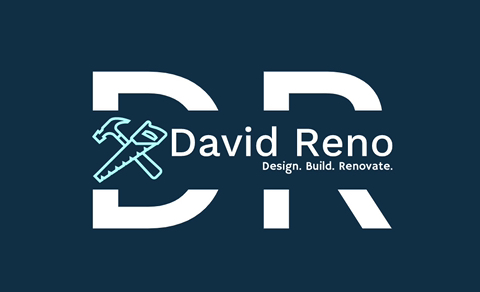Renovating a condo in Toronto presents unique challenges and considerations compared to standalone homes. The shared ownership structure and common elements within condominium buildings require a thorough understanding of rules and regulations specific to the city’s condominium associations. At David Reno, we specialize in helping homeowners navigate these complexities to achieve successful condo renovations.
Understanding Condo Rules and Regulations
Condominium living in Toronto has distinct rules and regulations that govern renovations. These regulations typically cover various aspects, including structural modifications, noise management, and safety standards.
Structural Changes
Before starting any renovation project, condo owners must be aware of restrictions concerning structural changes. Alterations that impact the building’s structural integrity or common areas usually require approval from the condominium corporation. This can include modifications to walls, ceilings, or floors. Understanding these limitations is essential to avoid potential conflicts and ensure compliance with the established guidelines.
Noise Control
Noise control is a significant consideration during renovations in condominiums. Many condominium corporations enforce specific rules regarding permissible noise levels and designated renovation hours to minimize disruptions for fellow residents. Adhering to these guidelines fosters a more peaceful living environment and demonstrates respect for neighbors’ comfort and well-being.
Safety Standards
Safety standards play a crucial role in condo renovations. Condominium corporations often mandate adherence to safety protocols to protect both residents and the property itself. This may include requirements for licensed contractors, liability insurance, and compliance with building codes and regulations. Prioritizing safety measures mitigates potential risks and safeguards against legal liabilities.
Permits and Approvals
Condo renovations in Toronto differ from house renovations, particularly regarding permits and approvals. When planning to renovate a house, you must check with the city for building permits. However, in a condo renovation, you must submit a renovation application to the condo board, which will review and check it against their rules and regulations.
Required Documentation
Your contractor must provide liability insurance, WSIB, a detailed scope of the work, and drawings to support your application. Contractors also have to submit a license for plumbers and electricians. Ensuring all documentation is in order before commencing work is crucial to avoid delays and penalties.
Common Renovation Considerations
When embarking on a renovation project within a Toronto condominium, it’s crucial to approach the process with flexibility, thorough planning, and a keen awareness of the specific rules and requirements governing condo renovations.
Choosing the Right Contractor
Look for contractors with a proven track record of completing condo renovation projects in Toronto. Choose a contractor familiar with the specific rules and regulations governing condo renovations and the challenges of working within shared spaces and tight deadlines. Verify that the contractor is licensed, insured, and bonded, and request references from past condo renovation clients to assess their reliability and quality of work. Prioritize communication skills and the ability to collaborate effectively with condominium management, neighbors, and other stakeholders throughout the renovation process.
Developing a Detailed Renovation Plan
Work closely with your chosen contractor to develop a detailed renovation plan aligning with your vision and the condo corporation’s guidelines. Communicate openly with your neighbors about the renovation project, including potential disruptions, noise levels, and safety precautions. Scheduling renovations during permissible hours and adhering to noise control regulations can minimize disturbances for fellow residents. Be prepared to address any unexpected challenges or changes during the renovation process and maintain flexibility in adapting to evolving circumstances.
Booking and Using Common Areas
When planning renovations in a Toronto condominium, it’s essential to adhere to guidelines for booking common areas, such as service elevators and parking spaces, and rules for material transport and disposal to maintain the building and common areas damage-free.
Key Considerations
- Booking Common Areas: Contact the condo management or concierge to inquire about the process for booking service elevators and parking spaces for renovation purposes. Follow any specific protocols or forms required by the condominium corporation to reserve these amenities.
- Material Transport: Coordinate with your contractor to establish a plan for transporting renovation materials and equipment to and from your unit without causing damage to common areas. Use protective measures such as floor coverings, padding, or protective barriers to prevent scratches, scuffs, or damage to walls, floors, and elevators during material transport.
- Disposal of Construction Debris: Dispose of construction debris and waste responsibly by municipal regulations and condo corporation guidelines. Avoid blocking common areas, hallways, or fire exits with renovation materials or debris to ensure unobstructed access for residents and emergency personnel.
Dealing with Noise and Work Hours
Any renovation will create noise, so understanding the city’s noise bylaws and work-hour restrictions is crucial to minimize disturbance and ensure peaceful coexistence with neighbors.
Noise Bylaws
The city of Toronto states: “Construction noise is not permitted from 7 p.m. to 7 a.m. the next day, except until 9 a.m. on Saturdays, and all day Sunday and statutory holidays.” However, most condo boards will only allow construction work to take place between 9 a.m. and 5 p.m. except on weekends and public holidays.
Noise Management Tips
- Plan Renovations During Permitted Hours: Comply with noise bylaws and minimize disturbance to neighbors.
- Communicate with Neighbors: Inform neighbors in advance about your renovation plans, including anticipated work hours, potential noise levels, and any temporary inconveniences. Transparency and open dialogue can help foster understanding and mitigate concerns.
- Schedule Noisy Tasks Strategically: Minimize the impact on neighboring units by scheduling noisy tasks during times when they are least likely to disturb others.
- Address Complaints Promptly: Respond courteously to any complaints or concerns raised by neighbors regarding noise or disruptions caused by your renovation activities. Take proactive measures to address issues and adjust your renovation schedule or methods to maintain harmony within the condominium community.
Financial Aspects: Deposits and Insurance
When planning renovations in a Toronto condominium, it’s essential to consider the financial aspects, including the requirement of insurance or a deposit to cover potential damage to common elements.
Insurance and Deposits
Many condo corporations require owners to obtain insurance coverage or provide a deposit to mitigate the risk of damage to common elements during renovations. Insurance policies tailored explicitly for condo renovations typically offer coverage for liability, property damage, and additional living expenses in the event of accidents, injuries, or property damage during the renovation process. Alternatively, condo corporations may require condo owners to provide a refundable deposit to cover potential damages to common elements, such as hallways, elevators, or shared facilities, caused by renovation activities.
Financial Protection
- Providing a Deposit: Ensures that funds are available to cover any damages to common elements caused by renovation activities. It is a form of financial security for the condominium corporation and fellow residents.
- Renovation Insurance: Protects condo owners financially and legally by covering various risks associated with renovations, including property damage, personal injury, and liability claims. It helps mitigate the financial burden of unexpected accidents or damages and provides legal defense in the event of lawsuits arising from renovation-related incidents.
Conclusion
Undertaking a condo renovation in Toronto requires careful planning and adherence to various considerations to ensure a successful outcome. Here’s a brief recap of the critical steps and considerations for a smooth renovation process:
- Understand Condo Rules and Regulations: Familiarize yourself with your condominium corporation’s guidelines and obtain necessary approvals before renovating.
- Obtain Approvals: Ensure compliance with your condo board’s rules and regulations and supply them with any required documentation.
- Book Common Areas and Ensure Material Transport Compliance: Follow procedures for booking service elevators and parking spaces and implement measures to transport materials without damaging common areas.
- Manage Noise and Work Hours: Adhere to Toronto’s noise bylaws and work-hour restrictions, and employ strategies to minimize disturbance and maintain peaceful coexistence with neighbors.
To achieve success, it’s crucial to work closely with your condo board, hire experienced contractors, and plan thoroughly.
If you need professional help with a condo renovation, look no further than David Reno! Whether you are looking for a kitchen renovation, a basement renovation, or a commercial renovation, David Reno is your experienced partner by your side.
David Reno is a leading condo renovation contractor in Toronto and the GTA and has years of experience in woodworking and interior design. We work with the most prominent Western European manufacturers using the most advanced German and Italian equipment to ensure the best possible quality.
We think outside the box and don’t try to force preconceived ideas on our customers but work with you to realize your ideas from design to realization.
David Reno offers free, no-obligation consultations, so contact us today to learn about your options and how we can help you realize your condo renovation project in Toronto.


